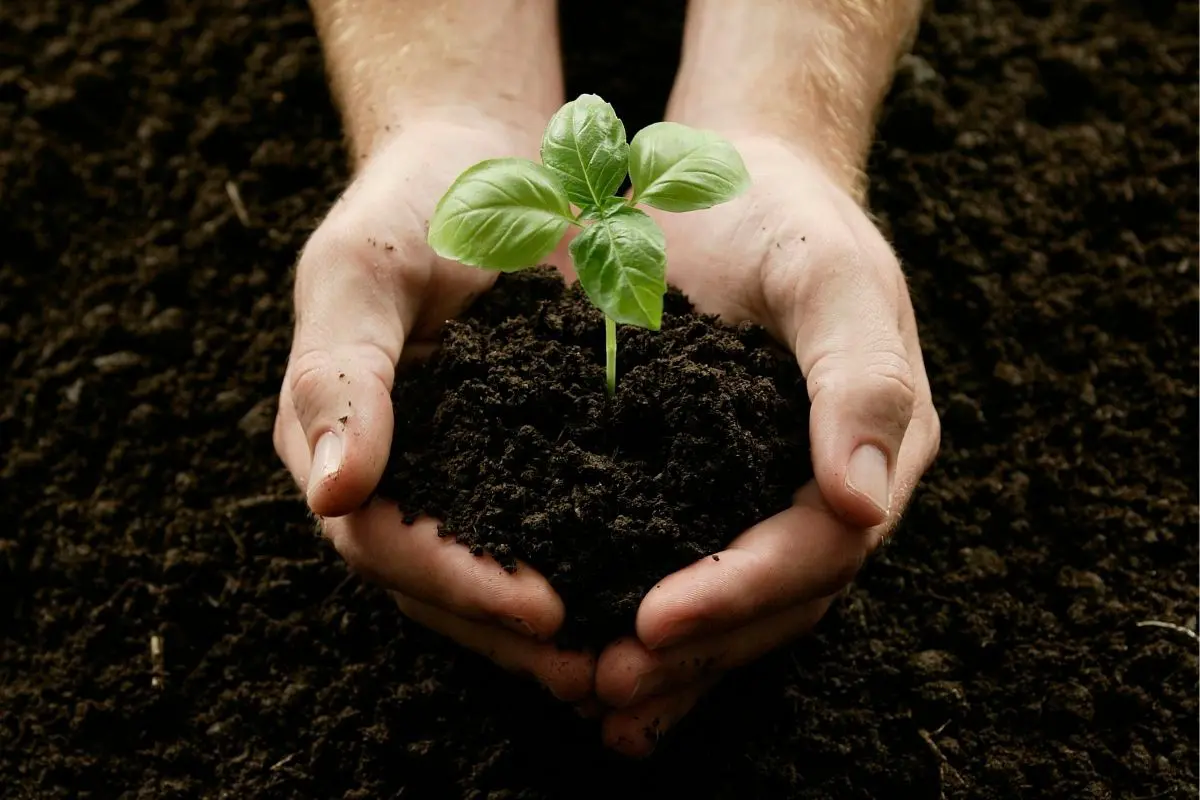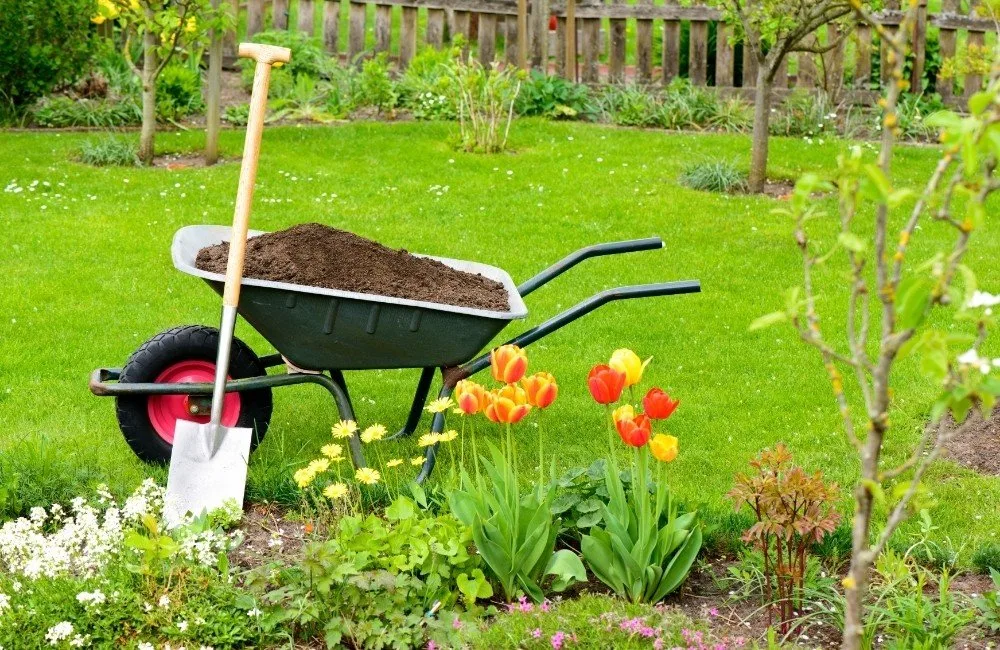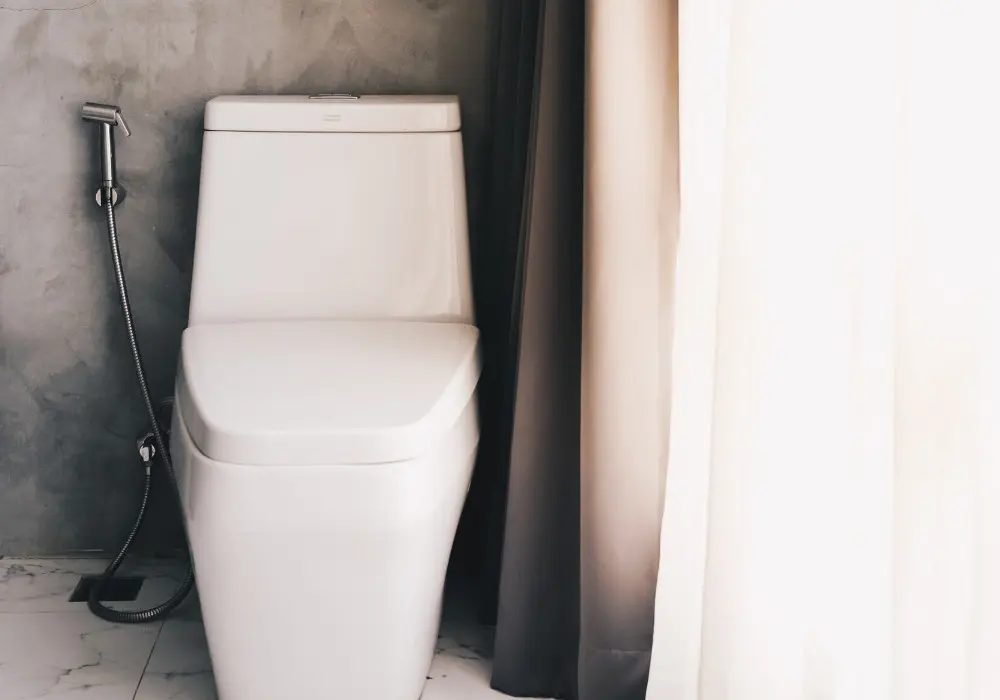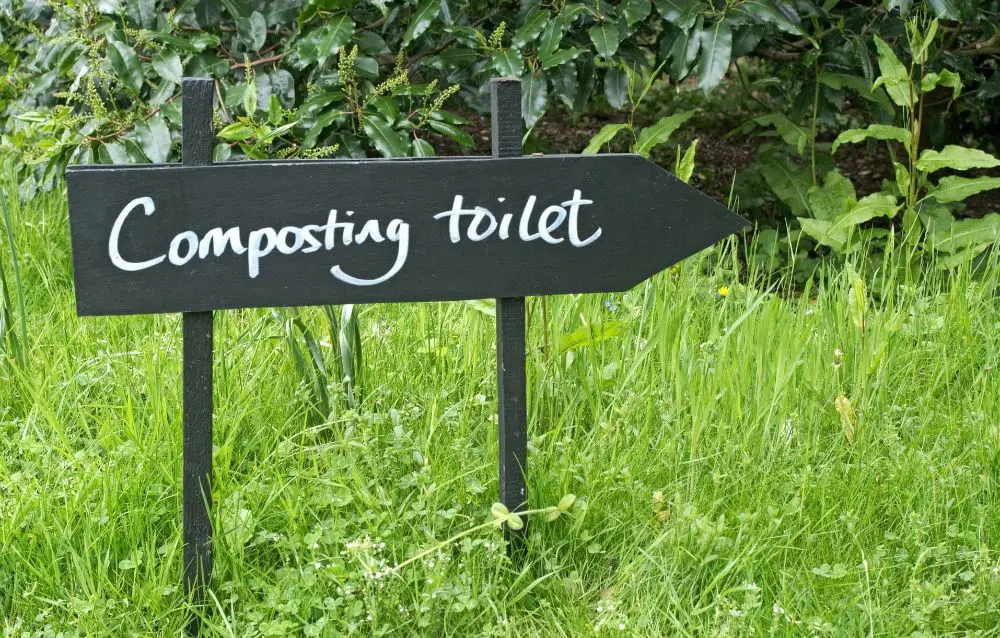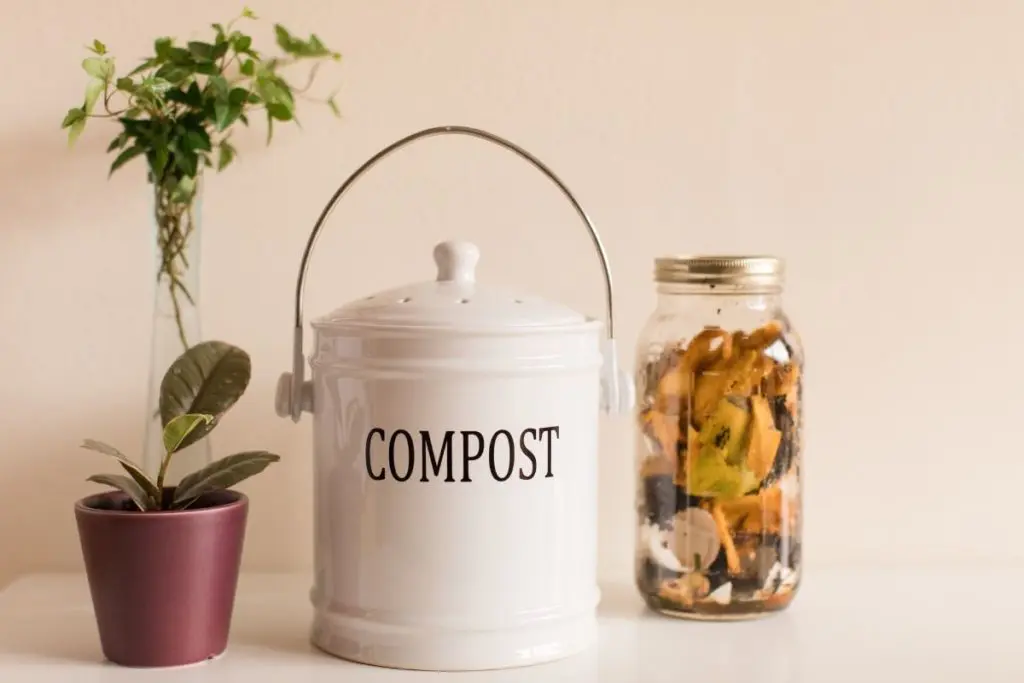Compost tea: what is it? Is it tea? How do I use it? What do I need to make it? You’ve got questions, and we’ve got answers.
While the science behind brewing compost tea is relatively complex, the actual process is quite simple. All you need is a bucket and a few other items, and you’ll be improving the biodiversity of your soil and making your plants happy in no time!
Whether you want to learn how to make compost tea for vegetables and fruits, for your giant flower garden, or the little fern on your windowsill, we’ve got you covered.
Compost Tea 101
Okay, so what the heck is compost tea? Of course, it’s not actually tea. However, it does “brew” into a substance resembling black tea, and your plants will certainly consider it a delicious beverage.
Simply put, compost tea is the result of soaking finished compost in a large container of aerated water for at least 24 hours. As the compost sits, beneficial microorganisms multiply, and water-soluble nutrients transfer into the soaking water. At the end, you’ll be left with “liquid gold” for your garden and houseplants. Think of it as the equivalent of a fast-acting multivitamin.
There are few ways to go about “brewing” your compost tea (more on that in a minute), but in the meantime, let’s take a look at why you might want to make your own.
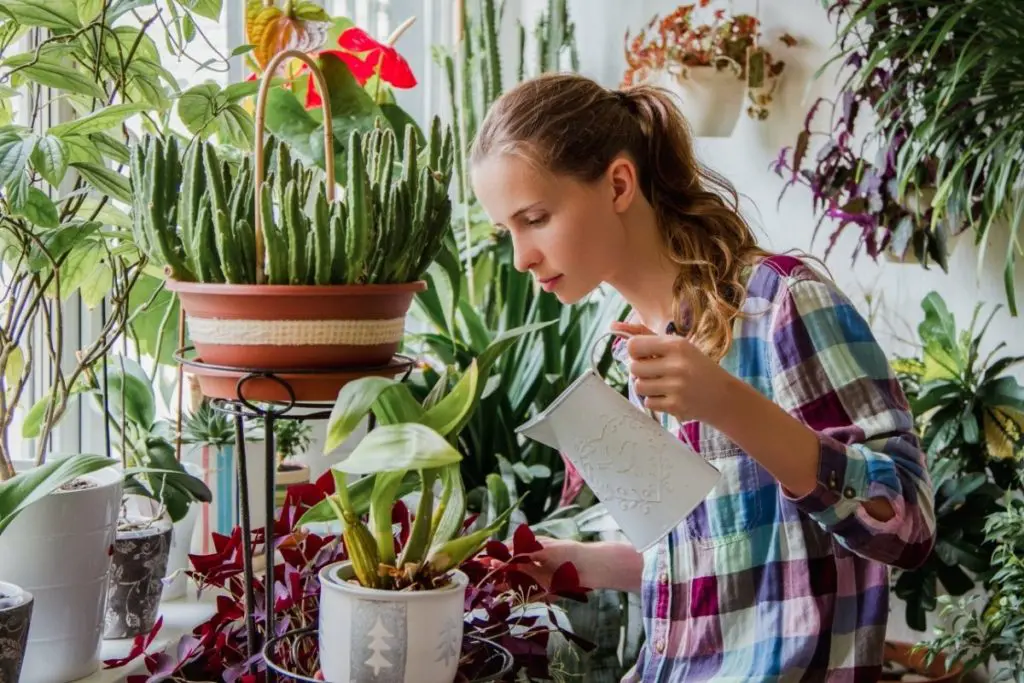
Top 4 Reasons to Make Compost Tea
- Like regular compost, compost tea “builds” soil with beneficial bacteria, protozoa, fungi, nematodes, and more. These beneficial microorganisms build immunity and help your plants ward off diseases, resist pests, and tolerate stress.
- Compost tea returns essential nutrients to your soil, and may increase plant growth, yields and flowering.
- Compost tea is far more eco-friendly than synthetic fertilizers. It’s also more environmentally friendly than buying organic fertilizers at the store, helping to cut down on fossil fuels associated with manufacturing, delivery, storage, and plastic containers.
- It’s (nearly) free!
Do I Have to Make My Own Compost Tea?
Not if you don’t want to. Compost tea is available commercially, either in a liquid form or more commonly, in a tea bag or dry form that you add to water. Organic liquid fertilizers with similar properties as compost tea are also available. Unfortunately, nothing store-bought will be as rich in nutrients and microbes as fresh compost tea you make yourself.
If you came here just to learn the basics of compost tea, and you’d be happier buying a jug of the premade stuff at your local garden store, we won’t judge. However, once you learn how straightforward and inexpensive it is to make your own superior-quality compost tea at home, you might be inspired to try!
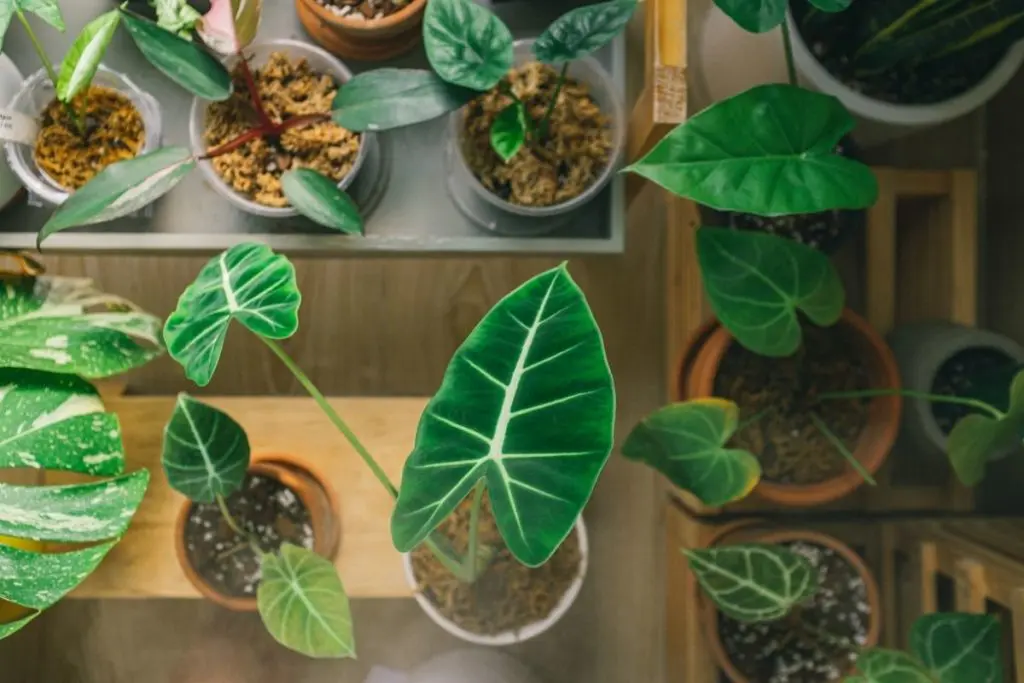
Aeration vs. No Aeration
When you make regular compost, you need to balance your three basic inputs: carbon-rich ingredients, nitrogen-rich ingredients, and water. When you’re making compost tea, you also have three ingredients: finished compost, food for your microbes, and water.
However, you will need to decide whether you want to brew your tea using an aerobic or anaerobic process. Translation: do you want to continually stir your bucket over a long period of time — or — buy a pump and let it do the work for you, more quickly, producing much better compost tea?
Making Compost Tea Without a Pump and Aeration
An unaerated method doesn’t require any specialized equipment. It uses basic fermentation to produce compost tea over the course of about 1-5 days. You can get away with a quick, overnight soak of just compost and water to use on outdoor plants or landscaping, but this makes a much weaker tea, and requires frequent stirring. Brew any longer than 24 hours, and non-aerated compost tea will likely start to “go bad,” breeding pathogens and non-beneficial organisms. It also might get real stinky.
If you still want to learn more about how to make compost tea without a pump, you can certainly find that information on the internet. However, for our purposes, we will concentrate on the aerated method for the remainder of this article.
Making Compost Tea with Aeration
Aerating your compost tea with a small pump results in a far shorter brewing time of around 24 to 48 hours. Most pro gardeners agree that thoroughly aerating your compost tea will result in richer, more microbially dense liquid fertilizer. We say, if you’re making an effort to brew, you might as well go the whole nine yards and purchase a pump, which cost about 20 bucks (or less) for a basic aquarium model.
If you want to know how to make compost tea from kitchen waste (instead of compost), there is another option that doesn’t rely on aeration: the Bokashi method. Instead of making a tea using finished compost, this method uses kitchen scraps, water, and a microbial additive.
You can find Bokashi kits online, which contain a 5-gallon bin with a spigot and a dry microbe mix. This style of “brewing” is easy to set up. Once you get going and are regularly adding scraps and microbes, you’ll have access to a steady stream of compost tea at the ready. The main drawback of this method is once your bucket is full, you’re left with semi-fermented material that you’ll have to add to an existing outdoor compost pile, bury for further composting, or add to your kitchen scrap program.
Making Compost Tea in 3 Easy Steps
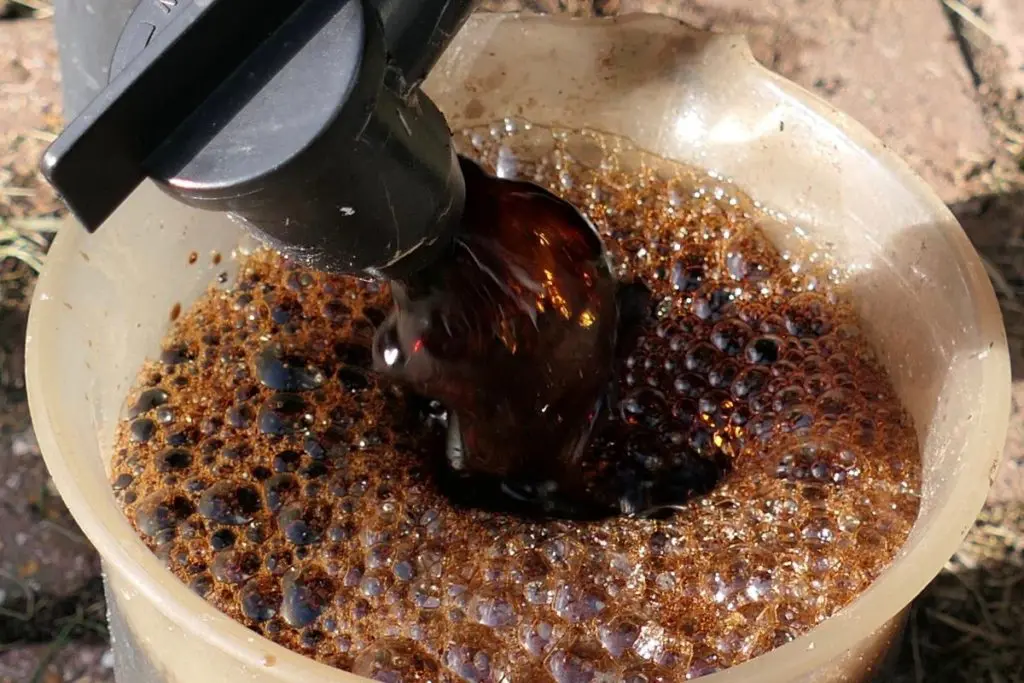
1
Figure Out How Much Compost Tea You Can Use
Before starting, take a beat to think about how much compost tea you need. If you’re an enthusiastic gardener with lots of outdoor space, you’ll use a whole lot more compost tea than, say, someone who lives in an apartment with a few houseplants.
If you’re in the former category, you probably want to buy a more substantial, longer-lasting pump and consider a more permanent set up. You can even experiment with optional additives like liquid kelp or fish fertilizer to see what your garden responds to. However, if outdoor space is at a premium and you only have a few houseplants, you might want to consider going with a Bokashi kit.
Let the volume of your need for compost tea guide the scale of your operation and how much space, time and money you want to invest.
2
Gather Your Supplies
Here’s what you’ll need to make compost tea:
- 5-gallon bucket. Brewing in 5-gallon increments seems to be the overwhelming suggestion of the online compost tea community.
- A little less than 5 gallons of water. Rainwater works wonderfully, but you can also use tap water or filtered water (except for reverse osmosis). If you’re using tap water, make sure that it sits out for at least a day, to allow any chlorine to evaporate.
- A pump and a 4” x 2” aquarium airstone, or similar, and some tubing. Most people use aquarium supplies, but there are also pumps specially designed for compost tea.
- A food source for your microorganisms. 1 tablespoon of unsulphured blackstrap molasses is the ingredient most commonly used.
- 2-cups of fully finished organic compost. Which kind of compost you use is important, as you’re likely to have better luck when your original input is of the highest quality. Types of compost most recommended: good homemade compost, compost from vermicomposting, or very high-quality store-bought compost. Avoid composted manure or other specialized composts, as they make compost tea that’s too strong and can burn your plants.
- Optional strainer. For straining.
3
Put It All Together
Now it’s time to begin the process.
- You’ll want to “pre-charge” your water if possible, i.e., aerate with your pump for a solid 15 minutes before you start adding any ingredients.
- Add your compost and molasses, and allow to brew for at least 24 hours.
- After 24 hours, you should see some foam on top, which is a sign your microbes are having a good time and enjoying their molasses.
- At this point, you can either start using your compost tea or wait another 24 hours for a stronger brew. (If you start using your compost tea before 24 hours of brewing, it’s not harmful, just weaker.)
- Finally, if you’re using it for indoor plants or as a foliar spray for leaves, you’ll want to strain your compost tea. Straining is only necessary if you’re using a watering can with a nozzle or a spray bottle that can get clogged.
4
How to Apply Compost Tea
A word about dilution: different plants and applications require different strengths of compost tea. If you’re putting your compost tea to work straight away on a large area outside, you probably don’t need to worry about diluting it, but keep an eye on how your plants respond.
A good rule of thumb for indoor use is to dilute your tea to a ratio of about 1:4 (or about 4 cups to a gallon of water), though some like to dilute even further to a 1:10 ratio.
Application Method
There are three ways to apply your finished compost tea:
- Drench. You can drench the roots of your plants with your tea, giving them a deep drink. Make sure your soil is already moist before a drenching application.
- Spray. Using a spray bottle to mist your plants’ soil and leaves (also known as foliar spray) is another way to apply compost tea. For this method to work well, you’ll need to filter your compost tea with a fine mesh bag or a filter, in order to remove any small particles that can gum up your spray bottle.
- Additive. Adding diluted compost tea to your plants’ water is also a great way to give them a milder, consistent nutrient boost.
How Often
Now that you know the basics of application, let’s cover frequency and timing. You can use diluted compost tea as an additive to your plant’s water daily, but keep an eye on overall moisture levels. For example, most indoor plants don’t respond well to daily watering. On average, most indoor or outdoor plants will appreciate a drench, spray, or dilution about every couple of weeks or so.
It’s ideal to feed your plants compost tea in the A.M., as that’s when they’re most receptive to watering and before beneficial microbes might die off in the afternoon heat. A morning application will allow leaves to dry off after application and help prevent fungal diseases that can show up with excessive moisture.
It’s great to apply compost tea to your plants year-round. Still, ornamental plants especially benefit from late winter to early spring spraying, repeating once they start to bud. Plants especially appreciate a little extra boost of compost tea when you’re first planting or transplanting.
Now that you have all you need to get started — happy brewing!
Further Reading
